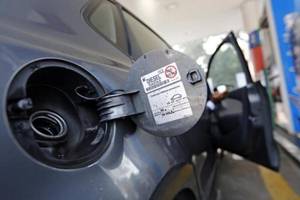
The National Green Tribunal (NGT) has decided to ban all diesel vehicles in Delhi, which are more than 10-years old. Ever since the decision came out in public on 18th July, 2016, there has been a mixed response for it. While many have welcomed the move for the objective of reducing pollution in Delhi, many others have raised doubts on the economic implications and implementation challenges. NGT had banned all diesel vehicles older than 10 years in April, 2015, but the decision had little effect as implementation was a challenge for the authorities.
As per the new order the Delhi Regional Transport Office (RTO) to deregister all vehicles falling in the scope of the decision with the exception of trucks for an undisclosed time-frame. Undoubtedly, this harsh decision will lead to massive inconvenience for users, who will be forced to invest in an unplanned automotive purchase. Vehicle manufacturers may seem to benefit from the move as their sales would increase, their joys are short-term at best. In the longer run, this policy will create problem for vehicle makers as consumers might lose interest in diesel vehicles altogether. With the policy expected to only spread to other states, the problem could be larger for such companies.
Diving into finer details reveals that deregistered vehicles would not necessarily be sent to scrap for now. Sellers hence should be able to sell such vehicles to smaller cities surrounding Delhi, especially rural areas. The effect of this on the used car market could be quite negative in the short-term, given the fact that almost 30 % of vehicles in Delhi are estimated to run on diesel. Sudden influx of lakhs of cars would send usual market prices crashing below overnight in the used car market. The sudden loss of resale value here would also deter many potential buyers from looking at diesel vehicles. Imagine buying a diesel car today and trying to sell it after seven years of usage only to learn that all neighbouring states too have been forced to adopt NGT’s decision.
While everyone seems to lose a lot due to this decision, buyers of the deregistered vehicles in rural areas would be immediate beneficiaries. They will get access to a wide range of vehicles ranging from hatchbacks to luxury sedans and SUVs, almost for dirt-cheap prices. Even if their respective states implement the NGT order in some time, implementation will be a major challenge. Just think of how many people wear a seat-belt in rural areas, despite the presence of cops.
No matter which way you analyze NGT’s decision, it’s hard to find out any advantage from it. As far as pollution is concerned, an IIT Kanpur report clearly suggests that passenger vehicles only account for 2 % of the PM 2.5, with the remaining being contributed by dust, industries and other sources. This reiterates the problem with our authorities who mostly adopt easier ways out of a problem, translating into lesser work for them and assurance that the problem’s root cause is left unaddressed. Instead of adopting a well-thought out scrappage scheme and arresting pollution at the key artificial sources, NGT has yet again decided to go ahead with a blanket scheme, that entails little work and almost no solutions.
Enforcement of this rule is going to be another major issue as it’s impossible to conceive how violators could be stopped in the long-term. Estimates peg the diesel car population in Delhi around 500,000 and it’ll be interesting to see how many of these actually get off Delhi roads in the next six months or so. It is such decisions that highlight how poorly-thought they are because the car user who’ll shortly see his car being deregistered had paid road tax for 15 years. Unless, refunded the value for five years, many could opt to file for a PIL. However, the effect of that seems unlikely to change things. Change requires a well-thought out and meticulous approach and I’m not sure if any of those apply to our authorities right now.





















